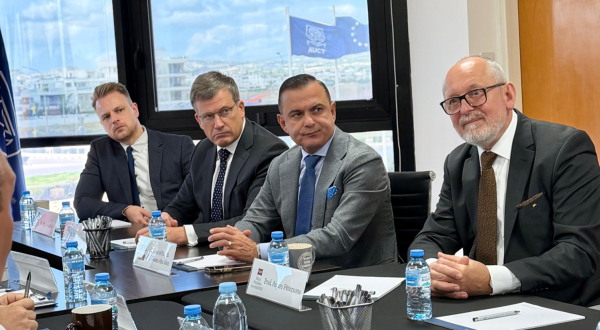RSU Concludes International Project with Discussion on the Development of Media Literacy in the Baltic Sea Region
Media experts from Rīga Stradiņš University (RSU) held an online discussion dedicated to a special edition (Advancing Media Literacy Research in the Baltic Sea Region) of the research journal Central European Journal of Communication on 30 June 2020. The event gathered communication experts, journalists, teachers, representatives of state and local government institutions, non-governmental organisations, amongst others. The discussion focused on the development of media and information literacy and media pedagogy. This was the closing event of the ERASMUS+ Media and Information Literacy & Innovative Teaching Methods Laboratory (MIL&LAB) strategic partnership project, which has been implemented since November 2017.
The overall goal of the MIL&LAB project was to develop a master's programme in media literacy and a laboratory for virtual teaching methods in media literacy. The LETA news agency and the National Library of Latvia have been involved in the project from the Latvian side with RSU as a leading partner together with the University of Tartu, Vilnius University, the University of Wroclaw and University of Gothenburg as international partners. The study covered the current situation of media literacy in the Baltic States, Poland, Finland, Sweden and Russia.
Although geographically linked, the Baltic Sea Region is a diverse space in terms of media and information literacy - while the Nordic countries and Poland have historically seen a public interest in raising awareness of the media and communication, these fields have long been systematically stifled by Soviet propaganda in the Baltic States. ‘Within the project, these differences in development are perceived as an opportunity to learn from experience at the same time respecting the specific circumstances of each member state – the political situation, education system, civil society activity and others,’ says RSU Professor Anda Rožukalne, the project MIL&LAB manager in Latvia, who was one of the speakers in the online discussion. Some of the other participants included Maarit Jaakkola, researcher and lecturer representing the University of Gothenburg and the University of Tampere, Ilva Skulte, Head of the RSU Communication and Media Studies programme, Alnis Stakle, RSU Assistant Professor and the Head of RSU Photography programme, Michal Kuš, a media literacy researcher from the University of Wroclaw, Krista Lepik, a media literacy researcher from the University of Tartu, and Andrius Šuminas, a media literacy researcher from Vilnius University.
The Central European Journal of Communication is an international scientific journal covering critical academic discussions on media and communication in Central Europe and beyond. Professor Rožukalne represents Latvia on the editorial board of the journal. The journal’s special edition, Advancing Media Literacy Research in the Baltic Sea Region, issued within the project is also available online.
Related news
 RSU management discusses development of medical education cooperation at high-level meetings in Cyprus International Cooperation
RSU management discusses development of medical education cooperation at high-level meetings in Cyprus International Cooperation


